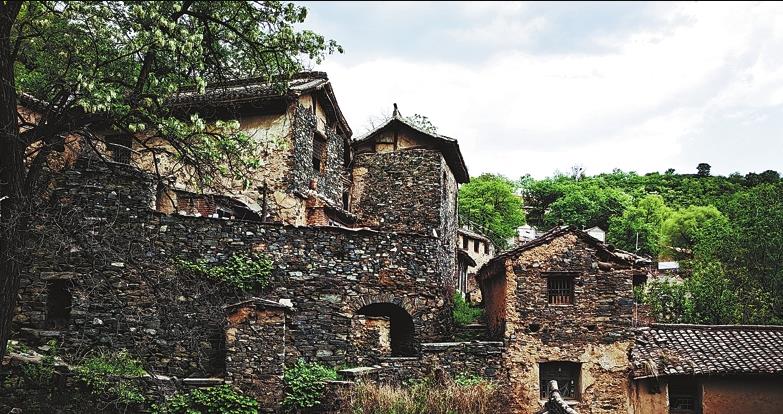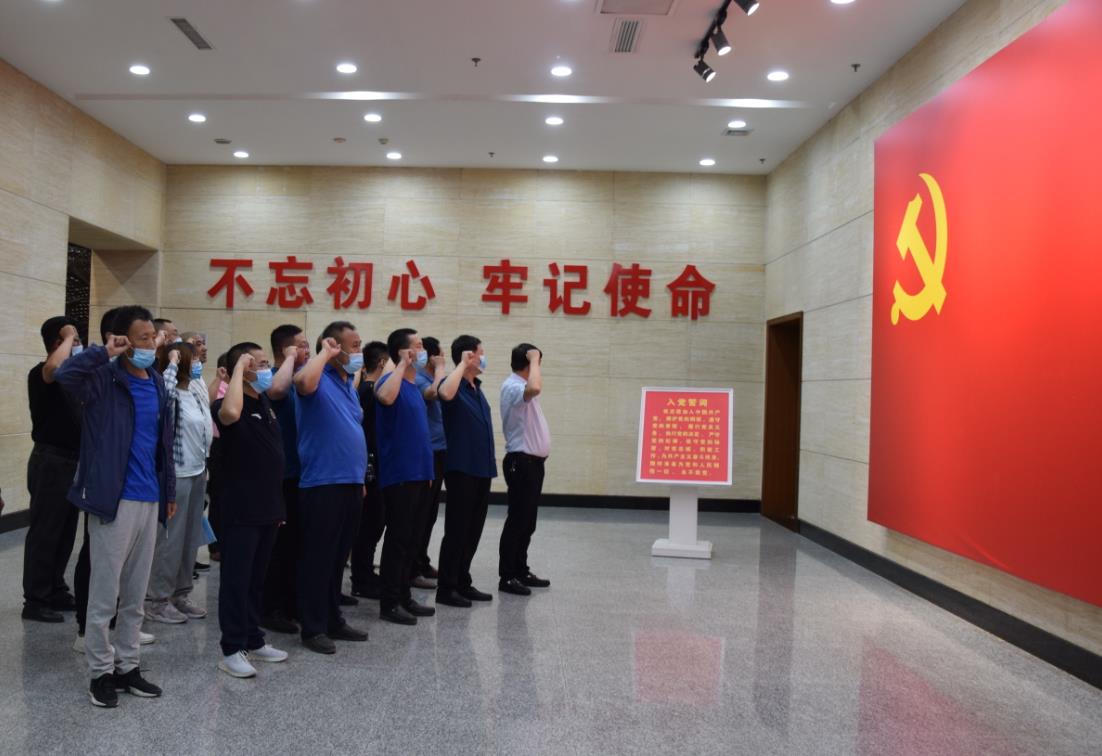
The ancient village of Luotuodao has become an emerging tourist destination because of its unique history. BAI XUEFENG / FOR CHINA DAILY
Life had been quiet in the village of Luotuodao in Yuxian county,Shanxi province,since the decline of the famed Jinshang merchants more than a century ago.
Local residents were told about the glorious past of the village,which was an important stop on the ancient"Northern Tea-Horse Road",which the Jinshang merchants used for their trade overseas.
Shanxi is known for its historical commerce that was developed by the Shanxi merchants,or Jinshang.It is said Jinshang merchants dominated commercial circles in North China for about 500 years from the Ming Dynasty(1368-1644).
Many of these successful merchants started out as small vendors,who traveled on horses or camels to regions as far as Russia.Luotuodao,which means"camel road",was one of the logistics hubs in their times.
The business of Jinshang merchants declined in the late 19th and early 20th centuries due to the development of modern transport.
Despite the stories they heard,villagers in modern times did not think their lives would be associated with the booming trade activities anymore.The old village houses,which stood as witness to the Jinshang business a century ago,became dilapidated after weathering rains and snows for more than a century.
The village is home to about 80 households.Back in 2015,there were 21 households registered with impoverished families.
But changes took place that year,with a rural cooperative founded,engaging villagers in growing walnuts.
The village declared all its residents had been lifted from poverty by the end of 2017.
But local officials were not content with the achievements.
Ma Wenming,who was appointed the Party secretary of the village in 2018,was the first to propose developing a tourism industry that year,capitalizing on Luotuodao's centuries-old streets and houses as well as its unique history.
But the villagers were not convinced.
"The houses were so old and shabby that even my family was not happy to live in them,needless to say tourists,"that was what local resident Liang Peizhi,as well as his fellow villagers,thought at that time.
Other problems for developing tourism included poor road connectivity,lack of public facilities,and the fact that it was less known to tourists.
Ma was fully aware of the difficulties but was not the kind of person to easily give up.
He asked for the help of the county government,which immediately invested in building public facilities and renovating villagers'houses.
A series of promotional events were held for the village,including posting pictures on social media and taking part in tourism fairs.
In 2019,the village was linked to the newly built Taihang No 1 Highway,a sightseeing road connecting many tourism destinations in the Taihang Mountains.
At a tourism fair,Luo Jun,a businessman from the Inner Mongolia autonomous region,showed great interest in the village.He opened a bed-and-breakfast business in the village in 2019.
"I know well the opportunities in the village because it is the right place to offer city dwellers a destination to escape the busy city life and give them a nostalgic experience with ancient buildings and a history related to the Jinshang merchants,"Luo said.
Luo's investment set an example for the villagers.They opened more catering businesses.
Luotuodao has received about 10,000 visits since 2019,according to the village's Party secretary Ma.
The once suspicious Liang Peizhi is now the boss of a family inn.
"I earned a net income of 5,000 yuan($765)from the inn in 2019 when I began the business,"Liang said."And the figure almost quadrupled last year."
Bai Xuefeng contributed to this story.
By YUAN SHENGGAO
 山西路桥:党建引领 建好“四好农村路”山西路桥建设集团党委扎实开展“党建质量提升年”,实施“六大工程”,立足“十四五”高质量、高速度、高效益发展的战略基点,全面提高党建质量和党建引领发展水平,为打造“国内一流的交通基础设施投资、建设、施工现代化企业集团”提供坚强政治保障。
山西路桥:党建引领 建好“四好农村路”山西路桥建设集团党委扎实开展“党建质量提升年”,实施“六大工程”,立足“十四五”高质量、高速度、高效益发展的战略基点,全面提高党建质量和党建引领发展水平,为打造“国内一流的交通基础设施投资、建设、施工现代化企业集团”提供坚强政治保障。
 常住人口3491万 山西人口普查数据"出炉"山西省统计局向社会通报山西省第七次全国人口普查主要数据。数据显示,山西省常住人口为34915616人,比2010年(第六次全国人口普查数据,下同)减少2.23%,年平均减少0.23%。山西省常住人口总量减少,主要受人口流动变化等因素影响。
常住人口3491万 山西人口普查数据"出炉"山西省统计局向社会通报山西省第七次全国人口普查主要数据。数据显示,山西省常住人口为34915616人,比2010年(第六次全国人口普查数据,下同)减少2.23%,年平均减少0.23%。山西省常住人口总量减少,主要受人口流动变化等因素影响。